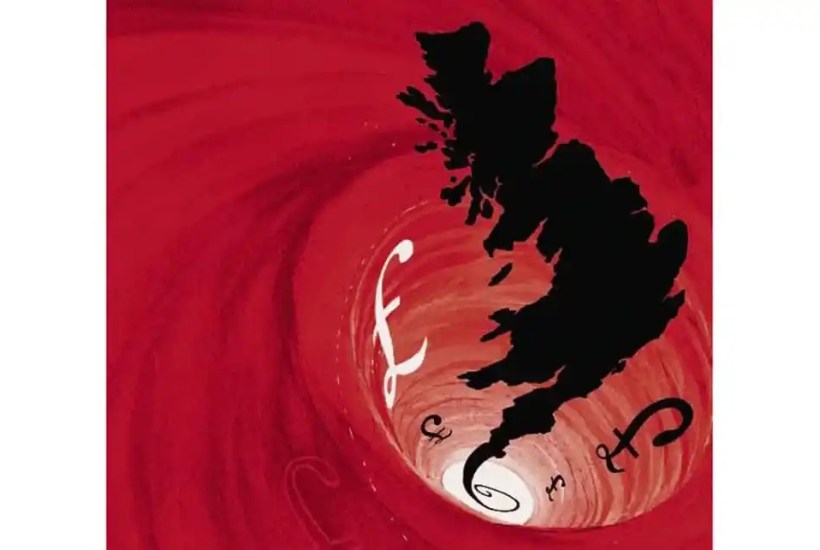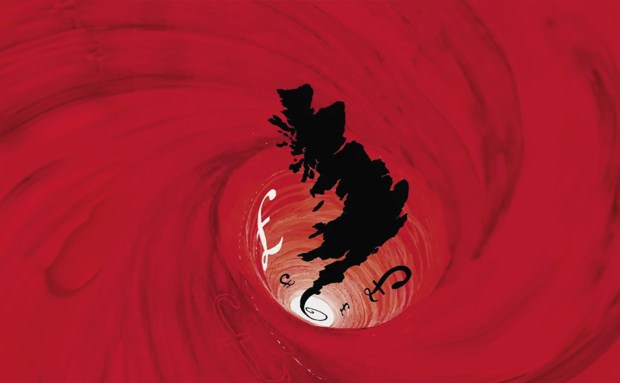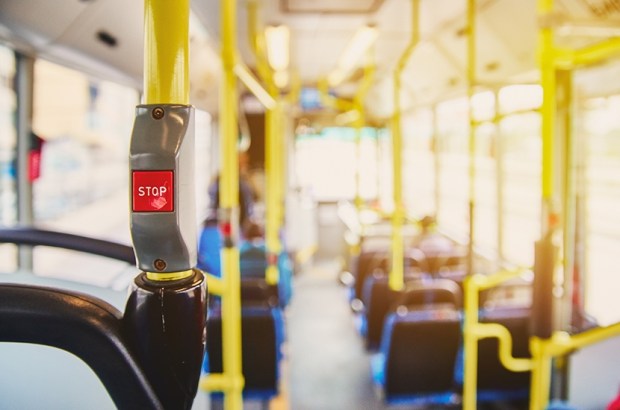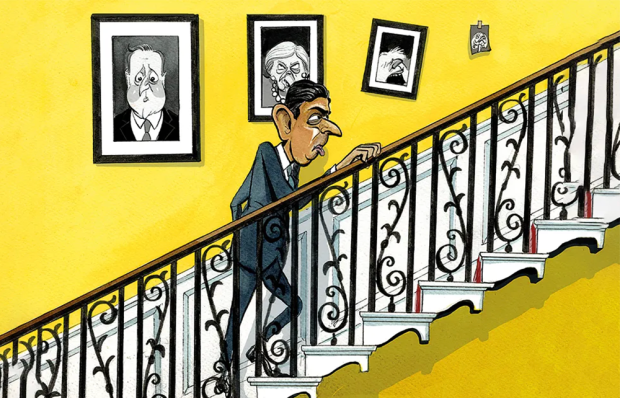Fifty years ago I was hitchhiking down the Eastern Seaboard towards Miami overnight. It was midwinter, icy and way, way below zero. Through miscalculation, I had ended up being dropped near the Cross-Bronx Expressway. I walked up a ramp to the elevated carriageway and began trying to thumb another lift. Utterly stupid: no car was likely to stop. But I was tired, and getting desperate.
After about an hour the intense cold was biting deep into the bone. Though I had gloves, I lost feeling in my hands. Still I persisted, exhausted but adamant, fatigue wrecking common sense.
Then came something I’d never experienced. Calm was creeping over me, and a kind of passivity. My sense of danger ebbed. ‘Why not just step back to the steel barrier,’ I thought, ‘and rest a while?’ I did this. It was comfortable there, hunched in a foetal position, my back to the barrier, as the headlights of passing cars, heedless, swept by. My head dropped forward, chin on chest. It began to snow again but I was enveloped by a different blanket, a feeling of drowsy security, like those moments after anaesthetic before the operating theatre, as you struggle to stay conscious. No longer cold, I went to sleep.
Minutes later (I suppose) I awoke. This, it struck me, was how people die of exposure. Not writhing in agony but passing out without a struggle, to be found dead the next morning. Summoning what strength I had left, I stood up, put on my rucksack and lurched back down into the Bronx, and survival.
Last week the International Monetary Fund issued a ‘damning report’ on the United Kingdom’s economic performance and prospects. It rated our recent showing as worse than Russia’s. Our economy was forecast to shrink by 0.6 per cent this year, the worst of the G7. The headlines were depressed. Pessimism reigned.
Into the general gloom, small rays of sunshine did filter through. Jeremy Hunt responded as a Chancellor of the Exchequer would: ‘The UK outperformed many forecasts last year, and if we stick to our plan to halve inflation, the UK is still predicted to grow faster than Germany and Japan over the coming years.’ Boosterish as ever, Boris Johnson burbled on Twitter that it was ‘time to shrug off all this negativity and gloom’. Rishi Sunak was asked for a response. ‘It’s “Have hope”,’ he said. ‘Have hope because I can make it better, and I will make it better.’
Paul Johnson of the Institute for Fiscal Studies commented that there was nothing new in the report, rather implying that the fuss was overdone. Blaming the Tories, the shadow chancellor, Rachel Reeves, struck an optimistic note. ‘As the IMF show today, it doesn’t have to be this way.’ The IMF had shown nothing of the kind.
All of which is as depressing as the report itself. On the record, everyone was in denial. Yet without the kind of overhaul that a Labour government under Sir Keir Starmer looks doomed (by both his own nature and Labour party revanchism) to duck, it really does have to ‘be this way’. Paul Johnson may be right that we knew all this already, but where’s the good news there? One would like to think Sunak will make it better – he’ll try – but what are the chances that two tail-end years of a long Tory era will find the party unity for the turnaround he seeks? Mr Hunt offered no evidence we can overtake Germany (Japan is anyway in long-term decline). And Boris Johnson is boosterish because robbed of boosterism he implodes.
Britain’s emergency is not the kind where sirens blare. We’re in slow, apparently relentless but quite comfortable relative decline; and no chasm yawns ahead, or not tomorrow. Like my experience on the Cross-Bronx Expressway, we’ve sat down, drawn our knees up to our chest and begun to slumber. We are (most of us) fairly comfortable. We echo that long-dead economist who remarked that ‘there is a great deal of ruin in a nation’. We console ourselves that apocalypse is not now, if ever, and that however beset Britain may be by economic recession or sluggish growth, the present order will see us out, and Britain remains a nice country to live in. If they want, our grandchildren can always emigrate; we, though, will stay put, and vote for continuity.
Paul Johnson knows the outlook is not good. Sunak knows that cold winds must blow and nothing he can do in the time he has left will usher in any economic transformation. Hunt has no big plan for recovery and must content himself with steadying the ship. Reeves may have a sober sense of the challenge, but she’ll have an equally sober sense of the political constraints upon a Labour government, and of her boss’s native caution and worrying lack of interest in policy as opposed to power. And so we doze, tweaking and twitching a bit here and there as the cold bites.
Britain needs a tremendous shock. We need something we can call an emergency. We need to run out of road, to confront ourselves in the mirror and confess: ‘This can’t go on.’ We can’t afford our NHS. We can’t afford social care that relieves children of the burden of supporting their parents through an ever-lengthening old age. We can’t afford paternity leave, and maternity leave, and a triple-lock on our pensions. We can’t afford the cat’s cradle of employment protection that discourages employers from employing people. We can’t afford two massive aircraft carriers and an eye-wateringly expensive upgrade of our nuclear deterrent. We can’t afford generalised tax cuts. We can’t wait until 2027 to push up the retirement age towards 70.
But short of a huge fright, what could embolden our leaders to say so? They dare not, and who can blame them? And so we doze, slipping into unconsciousness while the snow floats down. This is the way our world ends, but not yet, we say: not yet.
Got something to add? Join the discussion and comment below.
Get 10 issues for just $10
Subscribe to The Spectator Australia today for the next 10 magazine issues, plus full online access, for just $10.
You might disagree with half of it, but you’ll enjoy reading all of it. Try your first month for free, then just $2 a week for the remainder of your first year.















Comments
Don't miss out
Join the conversation with other Spectator Australia readers. Subscribe to leave a comment.
SUBSCRIBEAlready a subscriber? Log in